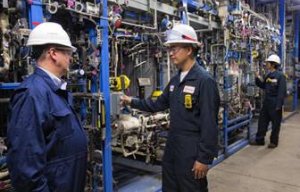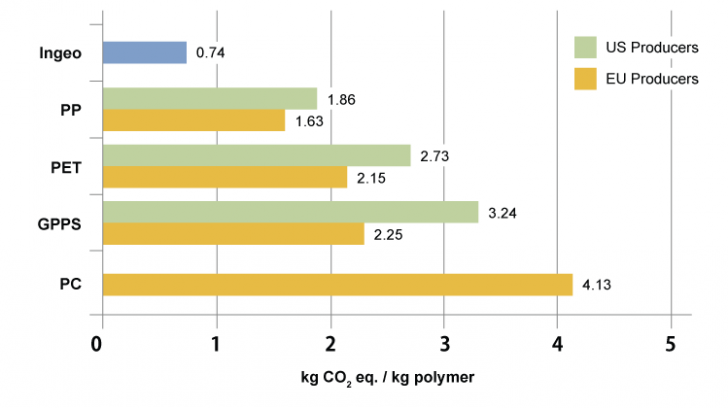
$250M technology upgrade for Invista in Texas
The most recent eco-profiles for Ingeo, PP, PS, PET, and PC show smaller greenhouse gas emissions, compared to previous European industry data.

2nd October 2014
Innovation in Textiles
|
Minnetonka, MN
NatureWorks has released the first findings of its updated eco-profile for its naturally advanced family of Ingeo biopolymers.
The revised profile follows the ISO 14040/44 standards and reinforces the fact that the production of Ingeo polymer emits fewer greenhouse gases and consumes less non-renewable energy compared to commonly used plastics such as polystyrene (PS), polyethylene terephthalate (PET), and polycarbonate (PC), the company reports.
The most recent recalculated eco-profiles for Ingeo, PP, PS, PET, and PC show smaller overall greenhouse gas emissions for each polymer, compared to previous European industry data. The ranking of the polymers from lower overall environmental impact to higher overall impact remained the same.
The eco-profile of a polymer provides information such as the total energy and raw materials consumed, and the total emissions to air, water, and soil from the cradle to the finished polymer pellet.
An eco-profile is an essential input to any full life cycle assessment (LCA) conducted on consumer products made from that polymer. NatureWorks works closely with brand owners, manufacturers, universities, and other research groups in using life cycle assessment to compare the impact of various material types on products.
“Our most recent eco-profile in 2010 was calculated using the methodology, the modelling software, and core database in place at the time,” said Erwin Vink, Environmental Affairs Manager, NatureWorks. “The same approach was used by such industry organisations as Plastics Europe since the beginning of the nineties to calculate the eco-profiles for the fossil based polymers. However, LCA tools and databases have progressed in the past four years, and we decided it was time to recalculate the eco-profile based on those advancements.”
“While the Ingeo manufacturing process remains the same, what has changed are the LCA software modelling tools and extensively broadened LCA databases and datasets, which give us the most up-to-date and accurate picture on the greenhouse gas emissions and other commonly used indicators in LCA.”

Business intelligence for the fibre, textiles and apparel industries: technologies, innovations, markets, investments, trade policy, sourcing, strategy...
Find out more